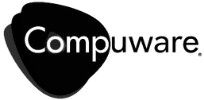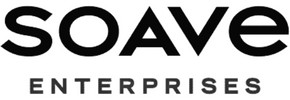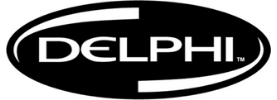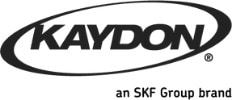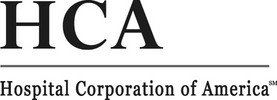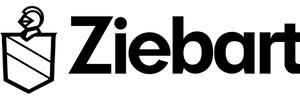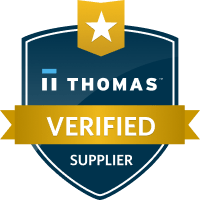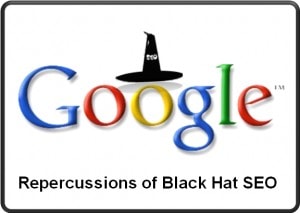
JC Penny’s Search Engine Optimization Debacle
No doubt by now you would have heard of the black hat search engine optimization (SEO) tactics JC Penny’s pursued in order to be ranked well for various search terms particularly in planning for the 2010 holiday season. The news was uncovered by the New York Times in quite a bit of detail.
Their investigation found thousands of unrelated web sites in the retail industry were linking JCPenny.com. The process was done by linking very specific keywords and based on the detail of these links someone planned this process. While JC Penny’s SEO company was apparently fired for this incident, I find it difficult to believe that someone at JC Penny would not have known about this strategy.
Let’s start from the beginning and take a look at linking strategies post Google going public in 2004 and serious algorithm changes that took place in 2005 and beyond. There are a number of data points that Google monitors about a website and the individual web pages within the website. Ultimately it is about a web page, not a web site, therefore, any page can become ranked and any page can become an entry point for a visitor. This would then require you to re-think the call to action if your home page is no longer the entry point.
This first begins with how relevant a web page is relative to the search. This would include your Title tag, the meta Description of a page, and the visible text. The three parts have to work together in order to show a certain level of keyword density on a topic. You will notice I did not say anything about meta keywords as those have become less important over the years since companies can hide what they are really about in the meta keywords versus what they are displaying to the rest of the world.
The next major point would be about the web pages importance. This is determined through the number of web pages linking to your website or web pages. The more links the better. At least that was the original thought until website owners decided to buy links cheaply without doing any work. These links have several sub-components including if the site that is linking to you is relevant to your topic and if that web page itself has any importance.
The process of trying to cheat yourself into the top of a Google search is considered “black hat” optimization or SEO. Google has different ways of monitoring this process and is generally successful in locating the problem situations. Although, JC Penny’s situation was not caught until much later. Websites caught in this act are de-listed from Google and need to clean-up their act in order to get back into Google.
The short-term benefits of black hat SEO do not make any sense to the longevity of a business. It is better to focus your attention on developing real links from reputable websites and communities mostly using Content Marketing with articles, news releases, documents (e.g. Powerpoints), Videos, and Social Media. Aside from the obvious benefits of Content Marketing being a credible linking strategy, the benefits for brand reputation, brand credibility and brand awareness include:
• Traffic from Search Engines
• Traffic from Non-Search Engines
• Owning more search results using 3rd Party website where your content is distributed
Linking strategies are labor intensive and take time. This process also requires three types of linking that include:
• Direct Linking to website home page
• Direct Linking using targeted keywords
• Cross Linking distributed content
• Deep Linking inside of your web pages
This is one reason where Pay Per Click advertising using Adwords becomes beneficial in order to generate short term results while the organic results are being executed through content marketing.
While we can continue to talk about JC Penny’s debacle using cheap black hat optimization tricks that has back fired, as well as, linking strategies, let’s focus a little on the New York Times article itself.
You will notice I am not linking to that article in this writing. Frankly, I refuse to! I do not wish to add a link giving that article any further importance on the web because within the article it is linking directly to all the black hat optimization websites. I am sure I could write an article strictly on the ethical linking policies required by major publications, however, we’ll see if we can get the point across in fewer words.
As an owner of a web marketing agency I took the time to read the entire article meticulously to understand what was written. Mind you I have over 17 years Internet experience with two successful companies and my knowledge is quite deep.
What I am surprised at, considering the writer’s newly gained knowledge about linking strategies, is why would the New York Times setup active links to the companies providing such horrible service from this article (meaning coming from nytimes.com domain) and give them any value, benefit, and support?
In this case:
• Page 1 all the links in the last paragraph to black hat optimization link building farms
• Page 2 link to SearchDex who was fired by JC Penny
• Page 3 links to TNX, cookingutensils and Cocaman.ch who are engaged in these black hat linking building schemes
Why would the New York Times support these companies with links to their websites? Are they planning on helping them further with their business by helping their ranking position? Afterall, NYTimes.com, as a domain, has a lot of power and links to websites from NYTimes.com will only help the destination website.
What ethical policies are in place at the New York Times when it comes to linking to a website?
Of course I submitted this question to the New York Times and am currently waiting on a reply, which will be posted here should it ever arrive.
The Internet is a living breathing marketing tool that has no end point. You cannot perform a certain amount of work and expect the work to provide you millions of dollars next week nor will the one time work or expenditure give you longevity. As a business you have to plan on continued web efforts using all facets of web marketing, which is a multi-directional strategy.
Afterall, something that came up in a client meeting recently, “We will stop your optimization efforts when the search engines stop changing algorithms and technologies!” Yeah, that will be the day.
Certainly your time resources are limited and our team can assist with a deep understanding of organic marketing, search engine optimization (SEO), local business marketing, proper adword management, social media and many other Internet marketing strategies. Local Business Listing Optimization Services are provided by SmartFinds Marketing, a Internet Marketing agency.
Author: Melih Oztalay




